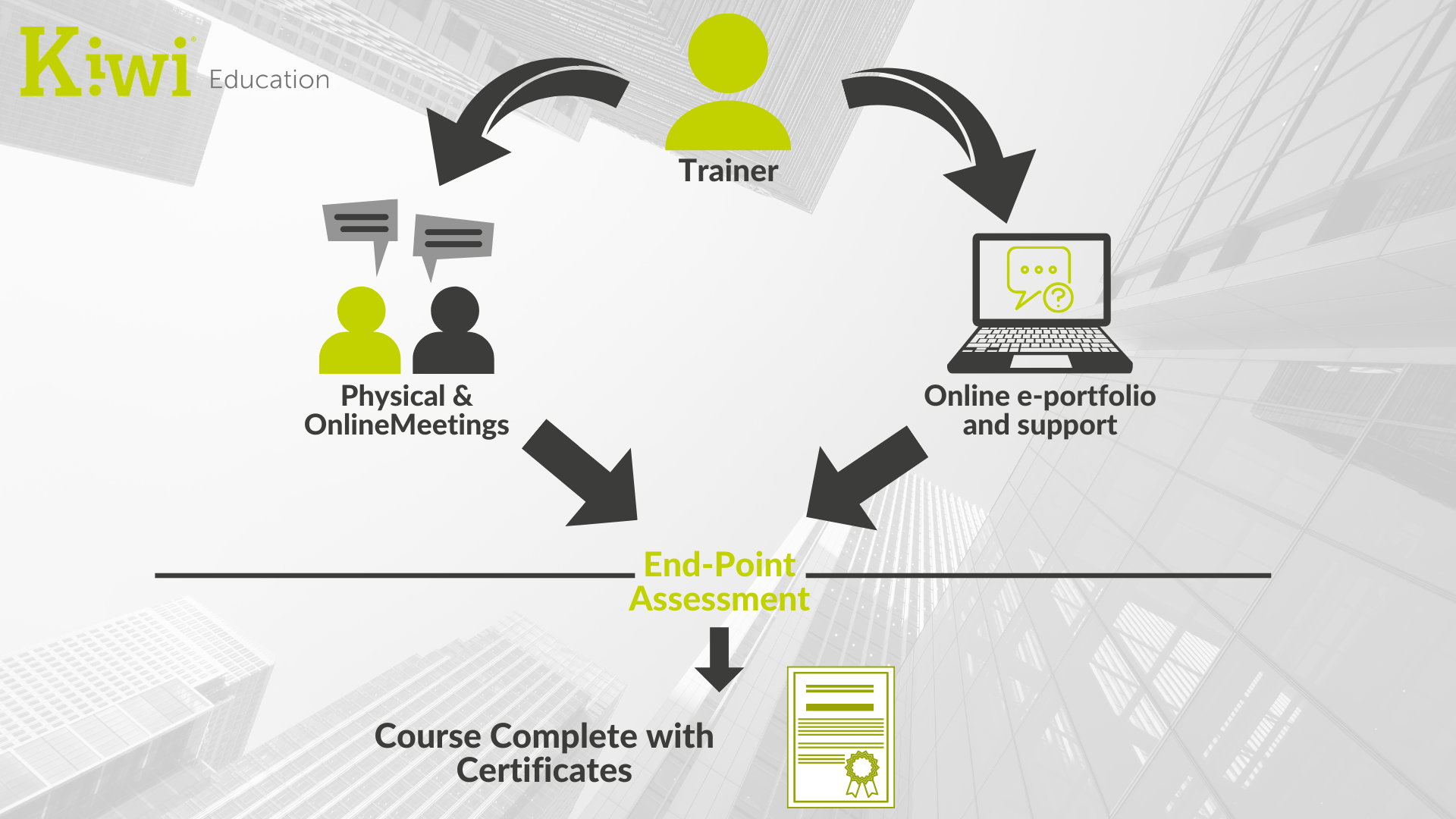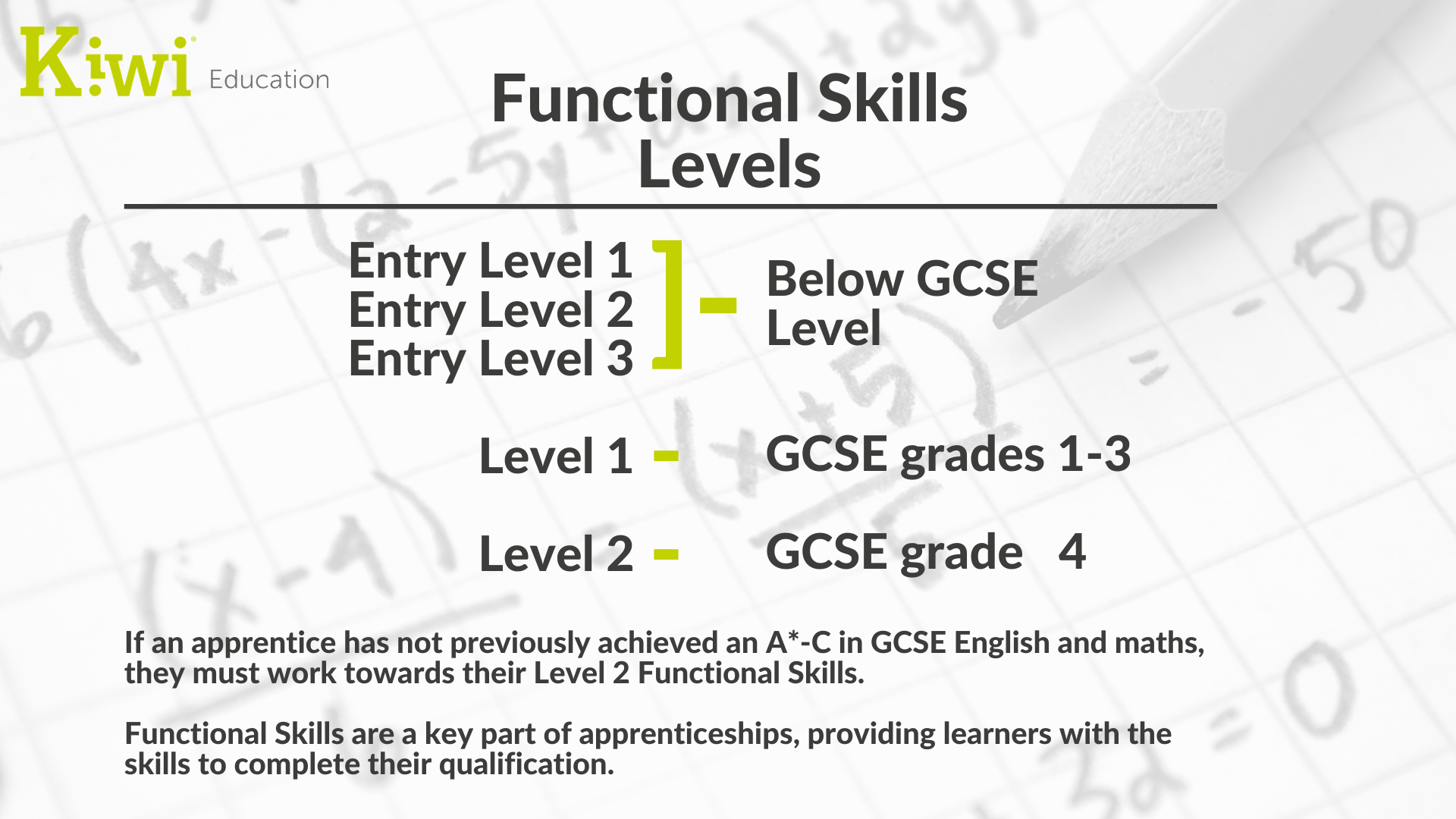What is an Apprenticeship

An apprenticeship is a real job where you learn, gain experience and get paid.
You’re an employee with a contract of employment and holiday leave. By the end of an apprenticeship, you’ll have the right skills and knowledge needed for your chosen career.
It can take between one and six years to complete an apprenticeship depending on which one you choose, what level it is and your previous experience. It’s funded from contributions made by the government and your employer.
Research undertaken by the National Apprenticeships Service (NAS) shows they are an optimal way of training, developing and skilling people for the future, helping businesses secure a supply of people with the skills and qualities they need and which were often not available on the external job market.
To enrol onto an Apprenticeship in your chosen area, you must be in the role for you to be able to gather the evidence – an example being you would not be able to enrol onto the Management apprenticeship if you are not a manager.
To become an apprentice, you must:
- Be 16 or over
- Not already be in full time education
- Spend at least 50% of your working hours in England
As an apprentice you’ll:
- Learn and gain hands-on experience in a real job
- Get paid
- Get training for a specific job role
- Be on a career path with lots of future potential
Apprenticeship Level with Academic Levels
Specialist qualifications such as PhDs – Level 8
Masters degrees, postgraduate certificates, postgraduate diplomas – Level 7
Bachelor’s degrees (e.g. BA or BSc) – Level 6
Foundation degrees, HNDs, Level 5 diplomas – Level 5
HNCs, Level 4 diplomas – Level 4
A-Levels, Level 3 NVQs, Level 3 certificates – Level 3
GCSE grade: 4-9 (A*-C), Level 2 NVQs, Level 2 diplomas – Level 2
GCSE grade: 2-4 (D-G), Level 1 certificates – Level 1
How the apprenticeship is structured
What makes Kiwi Education so different is that we operate totally around your business and have a commercial mindset. Our trainers are occupationally competent and understand the challenges which face businesses each day. Our job is to support the development of your workforce to produce business growth for the organisation.
Through regular meetings once per month either physical or virtual we are able to deliver training to your workforce and adapt to their learning styles and needs. Our trainers are at hand to provide support and guidance when needed.
Our online platform system allows candidates to log in anywhere any time to see their progress and communicate with their trainer. Photos, screen shots and voice discussions all can be used as evidence and contributes towards the qualification.
All Apprenticeships have an element of Employment Rights and Responsibilities (ERR) included, covering employment law that is there to protect employees and make sure everyone is treated fairly. Some also feature additional qualifications relevant to the role and Framework. Rather than just seeking to demonstrate competence in the particular job role, Apprenticeships are designed to give the apprentice the capabilities to progress their career, offering additional and long-term value to their employer.
All apprentices will be required to maintain a Log Book throughout their Apprenticeship. This log book will contain a record of time spent learning or training, both on and off-the-job, including those spent with a mentor in the workplace.

What is the End-point assessment (EPA)
End-point assessment (EPA) tests the knowledge, skills and behaviours that an apprentice has gained during their training. Unique to each standard, EPA demonstrates the competence of an apprentice in their role. This competence is valued by current and future employers.
In most courses an End-point assessment may include:
- Knowledge based on demand test
- Professional discussion relating to CPD
- Competency based interview
- Assessment of portfolio evidence
Once the End-point assessment is complete each element will be marked and graded and a final grade will be awarded to the apprentice.
Functional Skills in Apprenticeships
Functional skills are the key element of English and Maths skills that are needed for working and personal lives. These qualifications can be studied and the core skills are then applied to real-life situations.

Off the job Training
The ESFA’s apprenticeships funding rules state that all new standards must contain 20% off-the-job training. Off-the-job training is learning which happens outside of the normal day-to-day working environment and leads towards the achievement and completion of an apprenticeship. This is time each week where the apprentice can develop and the employer does not lose them for a period of time.
The apprenticeship funding rules state that off-the-job training can include the following:
-
The teaching of theory (for example: lectures, role playing, simulation exercises, online learning or manufacturer training)
-
Practical training: shadowing, mentoring, industry visits and participation in competitions
-
Learning support and time spent writing assessments / assignments.
